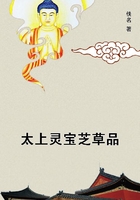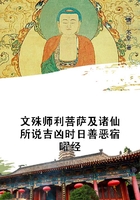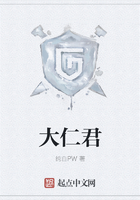INTRODUCTION
This work bears the title of an essay in the strictest sense of the word.No one is more conscious than the writer with what limited means and strength he has addressed himself to a task so arduous.And even if he could look with greater confidence upon his own researches, he would hardly thereby feel more assured of the approval of competent judges.
To each eye, perhaps, the outlines of a given civilization present a different picture; and in treating of a civilization which is the mother of our own, and whose influence is still at work among us, it is unavoidable that individual judgement and feeling should tell every moment both on the writer and on the reader.In the wide ocean upon which we venture, the possible ways and directions are many; and the same studies which have served for this work might easily, in other hands, not only receive a wholly different treatment and application, but lead also to essentially different conclusions.Such indeed is the importance of the subject that it still calls for fresh investigation, and may be studied with advantage from the most varied points of view.
Meanwhile we are content if a patient hearing is granted us, and if this book be taken and judged as a whole.It is the most serious difficulty of the history of civilization that a great intellectual process must be broken up into single, and often into what seem arbitrary categories in order to be in any way intelligible.It was formerly our intention to fill up the gaps in this book by a special work on the 'Art of the Renaissance'--an intention, however, which we have been able to fulfill only in part.
The struggle between the Popes and the Hohenstaufen left Italy in a political condition which differed essentially from that of other countries of the West.While in France, Spain and England the feudal system was so organized that, at the close of its existence, it was naturally transformed into a unified monarchy, and while in Germany it helped to maintain, at least outwardly, the unity of the empire, Italy had shaken it off almost entirely.The Emperors of the fourteenth century, even in the most favourable case, were no longer received and respected as feudal lords, but as possible leaders and supporters of powers already in existence; while the Papacy, with its creatures and allies, was strong enough to hinder national unity in the future, but not strong enough itself to bring about that unity.Between the two lay a multitude of political units--republics and despots--in part of long standing, in part of recent origin, whose existence was founded simply on their power to maintain it.In them for the first time we detect the modern political spirit of Europe, surrendered freely to its own instincts.Often displaying the worst features of an unbridled egotism, outraging every right, and killing every germ of a healthier culture.
But, wherever this vicious tendency is overcome or in any way compensated, a new fact appears in history--the State as the outcome of reflection and calculation, the State as a work of art.This new life displays itself in a hundred forms, both in the republican and in the despotic States, and determines their inward constitution, no less than their foreign policy.We shall limit ourselves to the consideration of the completer and more clearly defined type, which is offered by the despotic States.
The internal condition of the despotically governed States had a memorable counterpart in the Norman Empire of Lower Italy and Sicily, after its transformation by the Emperor Frederick Il.Bred amid treason and peril in the neighbourhood of the Saracens, Frederick, the first ruler of the modern type who sat upon a throne, had early accustomed himself to a thoroughly objective treatment of affairs.His acquaintance with the internal condition and administration of the Saracenic States was close and intimate; and the mortal struggle in which he was engaged with the Papacy compelled him, no less than his adversaries, to bring into the field all the resources at his command.
Frederick's measures (especially after the year 1231) are aimed at the complete destruction of the feudal State, at the transformation of the people into a multitude destitute of will and of the means of resistance, but profitable in the utmost degree to the exchequer.He centralized, in a manner hitherto unknown in the West, the whole judicial and political administration.No office was henceforth to be filled by popular election, under penalty of the devastation of the offending district and of the enslavement of its inhabitants.The taxes, based on a comprehensive assessment, and distributed in accordance with Mohammedan usages, were collected by those cruel and vexatious methods without which, it is true, it is impossible to obtain any money from Orientals.Here, in short, we find, not a people, but simply a disciplined multitude of subjects; who were forbidden, for example, to marry out of the country without special permission, and under no circumstances were allowed to study abroad.The University of Naples was the first we know of to restrict the freedom of study, while the East, in these respects at all events, left its youth unfettered.















